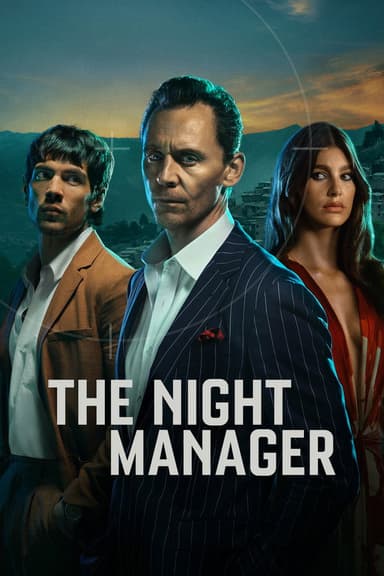
Hostage
2023 • Drama
When a Nordic Airlines flight to the USA is hijacked, a team of Swedish investigators must race against time to unmask the mysterious hijackers before they bring the airplane down or the US military shoot it out of the sky.
Why you should read the novel
Clare Mackintosh’s novel 'Hostage' immerses readers in the raw, unfiltered emotions of characters navigating excruciating choices at 35,000 feet. The book excels at capturing the claustrophobic tension and urgency of a hostage crisis, deftly exploring not just the external threats, but also the internal dilemmas facing each person on board. The layered narrative and shifting perspectives make this thriller impossible to put down, instilling genuine empathy through richly drawn character backstories.
Reading the novel allows you to access the full depth of character motivation and psychological complexity—so often lost in visual adaptation. Mackintosh’s prose masterfully builds suspense, inviting readers to piece together clues, suspect everyone, and question every motive. Each chapter pulls you deeper into a web of secrets and impossible decisions, heightening the emotional stakes in a more personal way than the TV adaptation ever could.
If you’re compelled by stories that blend heart-pounding plot with moral ambiguity, and value introspective journeys alongside adrenaline-fueled events, the novel 'Hostage' is not to be missed. Delve into the intimate, nuanced world Clare Mackintosh has created, and experience the tension and stakes on your own terms—page by page.
Adaptation differences
A major difference between the Hostage TV series and Clare Mackintosh’s novel lies in their narrative formats. The book unfolds through alternating first-person viewpoints, especially Mina and Adam’s, granting unique insight into their personal fears, regrets, and ethical quandaries. In contrast, the TV series takes a more external, omniscient approach, often showing multiple subplots and side characters visually rather than focusing tightly on Mina’s perspective, thus diluting the internal struggles that dominate the novel.
Character development also diverges. In the novel, Mina’s background, her relationship with her husband Adam, and the emotional weight of her past decisions are explored in poignant depth. The series, seeking to maintain suspense and broad appeal, tends to streamline or even alter certain relationships, sometimes inventing new characters or omitting others for narrative clarity or pacing.
Plot-wise, the TV adaptation compresses timelines and heightens action for dramatic effect. Events that unravel gradually in the book, often through slow-burn psychological tension, are escalated or condensed in the series format. Secondary plotlines, such as Adam’s investigation and the issue of their daughter’s illness, may be downplayed, reimagined, or entirely omitted to sustain momentum onscreen.
Lastly, the resolution in the TV series often pivots from the moral ambiguity and unresolved tension left at the novel’s close. Where Mackintosh’s ending leaves readers pondering difficult ethical questions and the consequences of tough choices, the series tends to favor clearer resolution—sometimes tying up loose ends that the novel intentionally leaves open, ultimately offering a more conventional sense of closure.
Hostage inspired from
Hostage
by Clare Mackintosh










